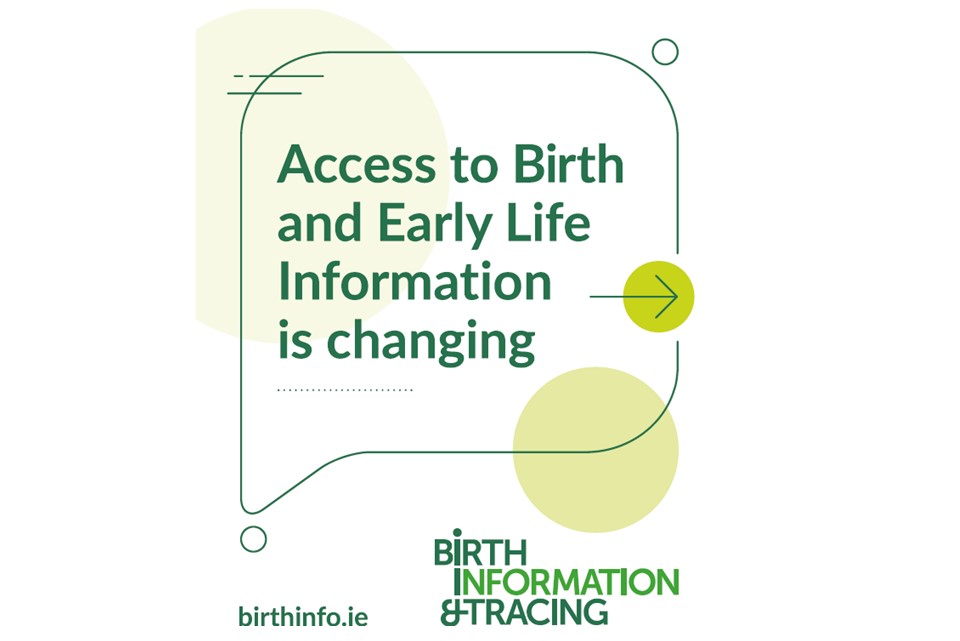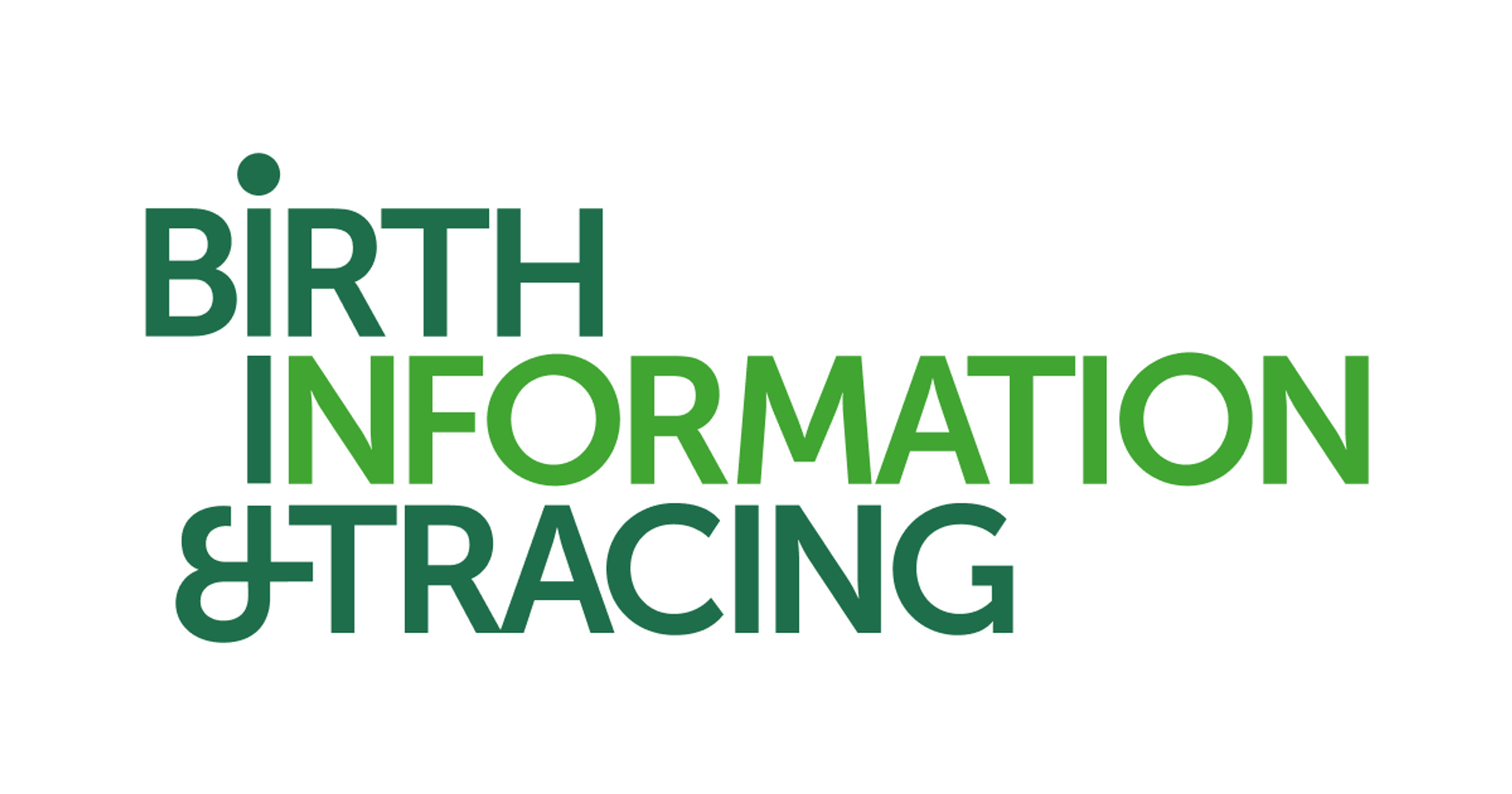
The Birth Information and Tracing Act, 2022 ensures, for the first time, that ‘a relevant person’ (adopted person, person who was, or suspects they were, boarded out, nursed out or resident in a Mother and Baby Home or County Home, and persons whose birth was illegally registered, or they suspect their birth was illegally registered) can now apply for their birth certificate, birth, early life, care, and medical information. Any items left for the relevant person such as letters, photographs and mementoes can also be applied for.
This means that adopted people and others will be able to have records that show their name at birth, birthplace, and date, as well as their parents’ names, dates of birth and other details. Any records related to their health including details of vaccinations will also be provided.
People affected by the issues under the legislation are invited to register their contact preference or complete a new application to update an existing contact preference, on the new Contact Preference Register. When an application for information is received, only preferences recorded on the register at that point in time can be released with the associated information The tracing service can be used by relevant persons – parents, adoptive parents, birth relatives, other genetic relatives, or those who were carers in relation to a relevant person – to enable contact or the sharing or requesting of contemporaneous information.
Where the relevant person has died, their son or daughter will have the same right to information that relates to their parent, if the relevant person’s parents (i.e. the applicant’s grandparents) are also deceased. A next of kin can also apply for access if the relevant person died while resident as a child in a Mother and Baby or County Home Institution.
In cases where a mother chooses to have no contact, this will not prevent her identity from being shared, but her right and wish not to be contacted will be communicated.
In cases where a mother chooses to have no contact, this will not stop adopted persons meeting or engaging with other family members, such as siblings or half siblings.
A preference for no contact only gives the Authority the remit to communicate the preference and inform relevant persons of their parents wish for privacy. It does not prohibit other actions under the Act.
ADOPTION AUTHORITY OF IRELAND
The Adoption Authority of Ireland (AAI) is the central authority for adoption in Ireland. Established under the Adoption Act 2010, the Authority operates as an independent body under the aegis of the Department of Children, Equality, Disability, Integration and Youth (DCEDIY). The Authority’s functions include those of an operational, judicial, and quasi-judicial nature in relation to the adoption process as provided for under the Act, but also relating to the Authority’s designation as the Central Authority for the 1993 Hague Convention on the Protection of Children and Co-operation in Respect of lntercountry Adoption. In addition, the Authority has registration and regulatory functions for all adoption related matters in Ireland.

